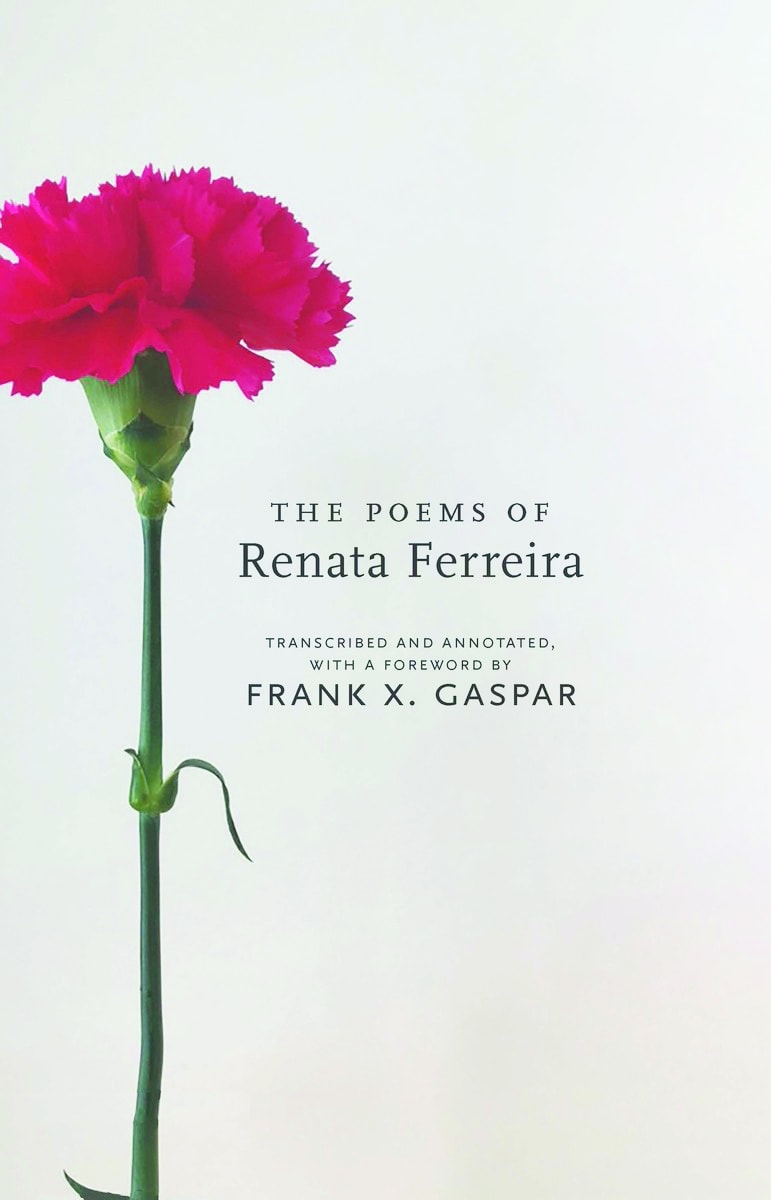by G.W. Mercure
Nobody says, “I want to win the Rose Dorothea Award when I grow up.” Maybe the closest possible exception is Frank Xavier Gaspar, born with a poet’s name in the land of Kunitz and Oliver and Glaspell, among many others. Unlike those luminaries, however, Gaspar is a Provincetown native.
“I always wrote,” he says. “I mean, baby-scribble and stuff. I just wrote. There was nothing else I could do, but I never really thought about awards and stuff. But the Rose Dorothea Award is huge because of coming from the town.”

Gaspar, the accomplished poet and daring novelist will receive the Rose Dorothea Award this year at the upcoming Provincetown Book Festival, September 29 to October 1. The recognition is both perfect and unlikely: He was born on the West End, “where all the poor people were [at the time].” It wasn’t Privilegetown for Gaspar. “We were really—I mean, when I say poor, I mean movie-poor, we were f—king poor. I had cardboard in my shoes in winter, that kind of stuff.” But Gaspar went from Dickens to Dickinson in part due to the influence of the town’s exotic summer visitors. It awakened a latent identity for Gaspar. They appeared like harbingers, messengers, calling out that there was a world away from where he was and that exploring it would be revelatory.
“These marvelous f—king people,” he says. “It was so different, and they were, in my mind—my very, very young mind—they were correct. They were right. They were living somehow just in this better place, to me, in their minds, their heads, you know? They painted pictures and all this stuff. So when I graduated, and I had no prospects and three hundred bucks from working at the hot dog stand…And I got on a bus and went to New York because so many of those people were from there. And that was it.”
Gaspar earned acclaim and success on the strength of his emotionally uncompromising poems that explored with rigor the many threads that connect ancient myth and the mythopoetic with the often dark inner lives we all lead. Those connections are ceaseless, timeless, in Gaspar’s work. He compares the subject of his recent book to Sappho; finds the roots of contemporary sexuality in a glimpse of a Babylonian sculpture; evokes the moons of Jupiter as he straddles a bicycle. And of late he is a conduit for the named nameless: His latest work is a novel and not a novel and is a narrative and not a narrative, fiction and not fiction. The Poems of Renata Ferreira dictated itself to Gaspar.
“She identified herself,” he says. “‘Renata’ means ‘rebirth.’” Ferreira wouldn’t accept her silence, and after a brief struggle, neither would Gaspar.
“I was working on a novel and, you know, out there typing, and I looked at this piece, and I’m thinking, ‘What the hell is this?’ And it was something about ‘Where were you; why are you tired; where were you when we had the carnations?’ That’s kind of about the revolution, maybe? I don’t know. I wasn’t writing about anything like that. I was in New York. And so it happened three or four more times or maybe several times, and I realized I don’t know what this is, but this is not me. This is almost like automatic writing.”
The poems continued to visit Gaspar, wherever he was, whatever he was doing. “She dictated to me while I was driving sometimes,” he says. She finally moved on, able to accept her silence in return for Gaspar’s work. But silence doesn’t mean absence. “I know where she is now. She is in Italy. A lot of her poems kind of reminded me of Sappho’s fragments, and she is at Herculaneum right now. And she’s looking for Sappho.”
In his early days, Gaspar embraced the notion of being a “starving artist,” a path he shared with the poets and painters encountered in Provincetown. His aspiration was never fame or fortune but the pursuit of his craft, the artist’s journey. The path doesn’t need to be clear. Doubt is a regular detour. And Gaspar sees discouraging detours in the path of contemporary poetry. The democracy of it, especially in the digital age, is a double-edged sword.
“I don’t think it’ll resemble anything like it used to,” he says of contemporary poetry. “There is definitely a wave. There’s just motion. And it’s in all of this, you know, social media and tech and stuff. And in my humble opinion, a lot of it is wretched, but they’re writing. And that’s where the action is right now. I don’t think that’s where we’re ending up. There’s a kind of morphing going on. I don’t know where it ends. Anybody can be a poet now: You’re just out there online.”
“I knew I was going to be a writer,” he says. “I didn’t think I would be successful or making money. I thought I would be a poor guy. Like a French novel or something. I didn’t care.”
Gaspar is still driven by the same unsated curiosity, the same need for authentic experience, the same Beat-esque ethos. While those bygone Kerouac “mad ones” were “desirous of everything at the same time,” there is a shocking simplicity in Gaspar’s recollection. “I wanted everything else,” he says. Sometimes everything else takes you back home.
Frank X. Gaspar will be presented with the Rose Dorothea Award on Friday, September 29, 6 p.m. at the Provincetown Public Library, 356 Commercial St. There will also be a reading and reception. The event is free. For more information visit provincetownbookfestival.org.











